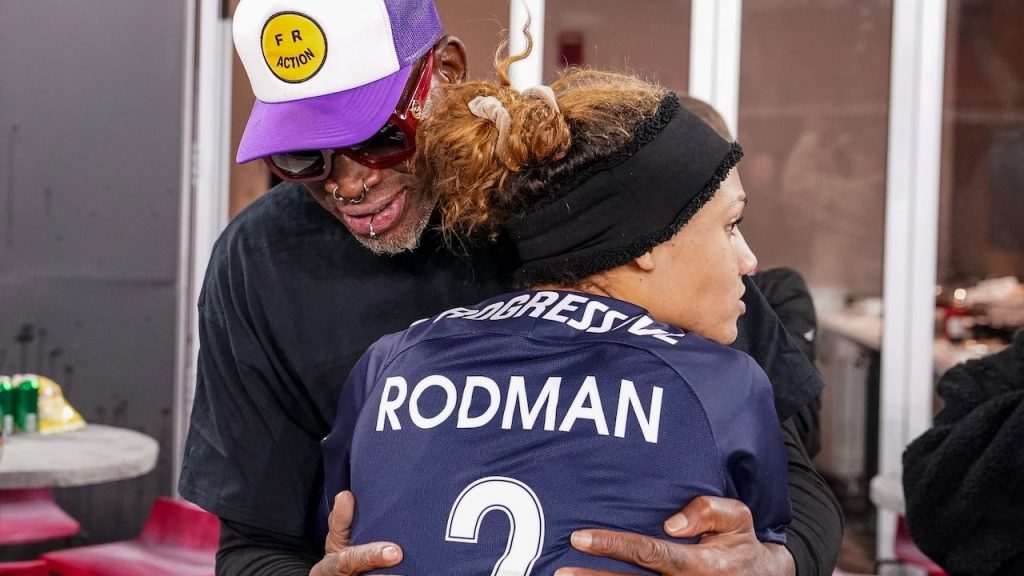The strained relationship between basketball legend Dennis Rodman and his daughter, soccer star Trinity Rodman, erupted into public view following Trinity’s candid interview on the “Call Her Daddy” podcast. During the interview, Trinity openly discussed her father’s absenteeism, characterizing him as a biological father but not a paternal figure in her life. She criticized his self-centered nature, suggesting his focus consistently revolved around himself and his desire for attention, often at the expense of his children’s emotional well-being. This emotional toll, she explained, stemmed from his erratic behavior and the manipulation she felt he subjected her to throughout her life.
Following Trinity’s revealing podcast appearance, Dennis Rodman issued a public apology on social media. He expressed regret for not meeting her expectations of a father, claiming he had made repeated attempts to connect with her, only to be thwarted by instructions from others for Trinity to ignore him. He professed his pride in her accomplishments and reiterated his desire for a relationship, offering his phone number and emphasizing his persistent efforts to reach out. The tone of the apology, however, struck many as performative, focusing on his own attempts rather than acknowledging the pain he had caused.
Trinity’s response to her father’s apology was swift and dismissive. She labeled it a “joke” on her Instagram story, criticizing both the content and the attention it garnered. She expressed a desire to move forward and detach herself from the situation, indicating a deep-seated frustration with his behavior and the public nature of their conflict. Her reaction underscores the long-standing nature of their strained relationship and suggests that the apology did little to address the underlying issues.
The public exchange between father and daughter highlights a complex family dynamic marked by emotional distance and contrasting perspectives. While Dennis Rodman portrayed himself as a persistent but rejected father figure, Trinity’s account depicted a man preoccupied with his own image and largely absent from her life. This discrepancy reveals the deep chasm between their experiences and interpretations of their relationship. Trinity’s mother, Michelle Moyer, who divorced Rodman in 2012, played a protective role, shielding Trinity and her brother, DJ, from their father’s turbulent lifestyle. This further emphasizes the fractured family dynamic and the efforts made to create a stable environment for the children, separate from their father’s influence.
The fallout from the podcast interview and subsequent apology has brought the Rodman family’s private struggles into the public domain. Trinity’s willingness to share her experiences offers a glimpse into the challenges faced by children of celebrities, particularly those whose parents grapple with personal demons and prioritize public image over familial responsibilities. Her candidness also speaks to a broader societal conversation about the complexities of family relationships and the lasting impact of parental behavior on children’s emotional well-being.
This incident serves as a reminder that fame and fortune do not guarantee fulfilling family relationships. It underscores the importance of consistent emotional presence and support in parenting, elements seemingly lacking in Trinity’s experience with her father. The public nature of their conflict also raises questions about the role of social media in family disputes and the potential for performative apologies to exacerbate existing wounds. Ultimately, Trinity’s story highlights the enduring power dynamics within families and the ongoing struggle for reconciliation when foundational relationships are fractured.

